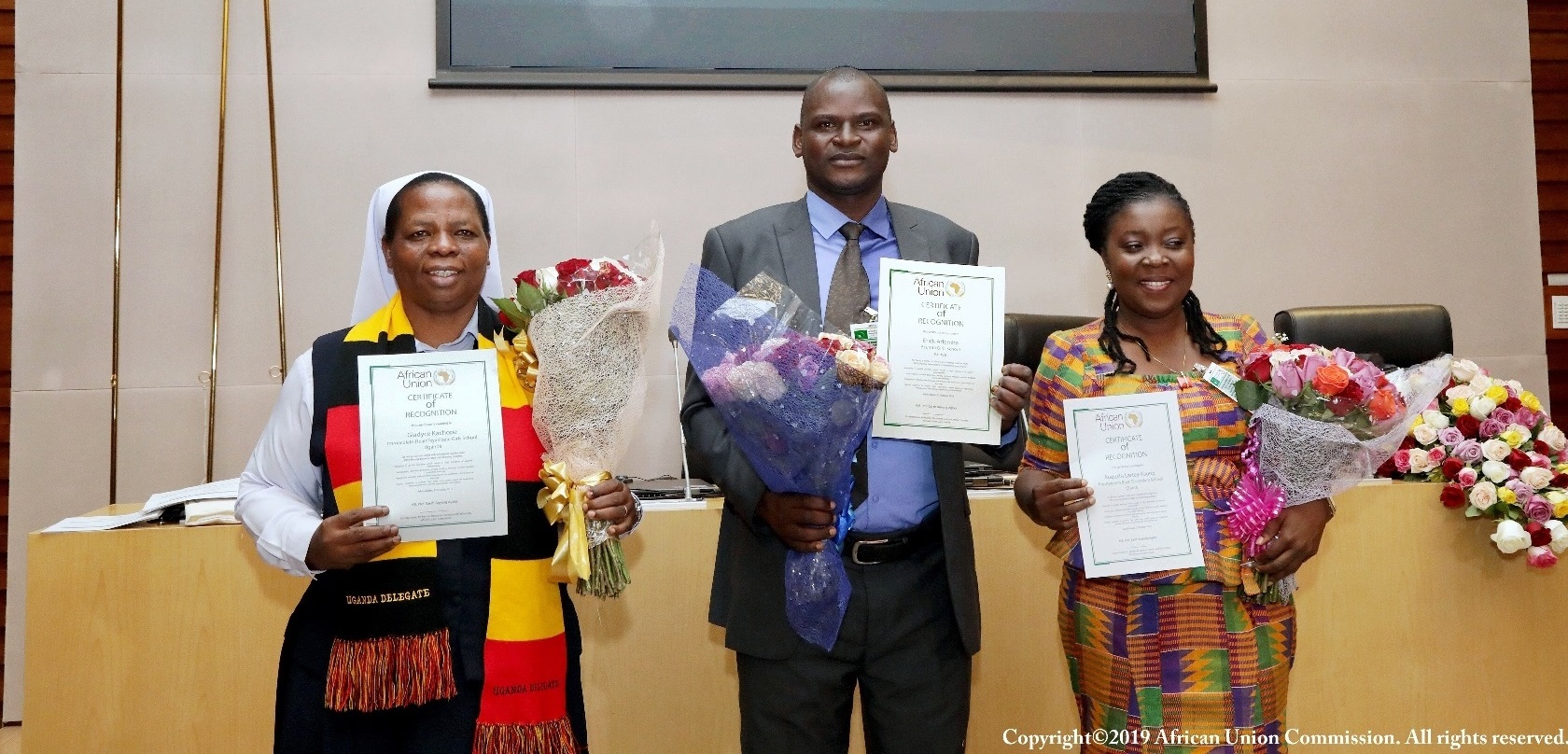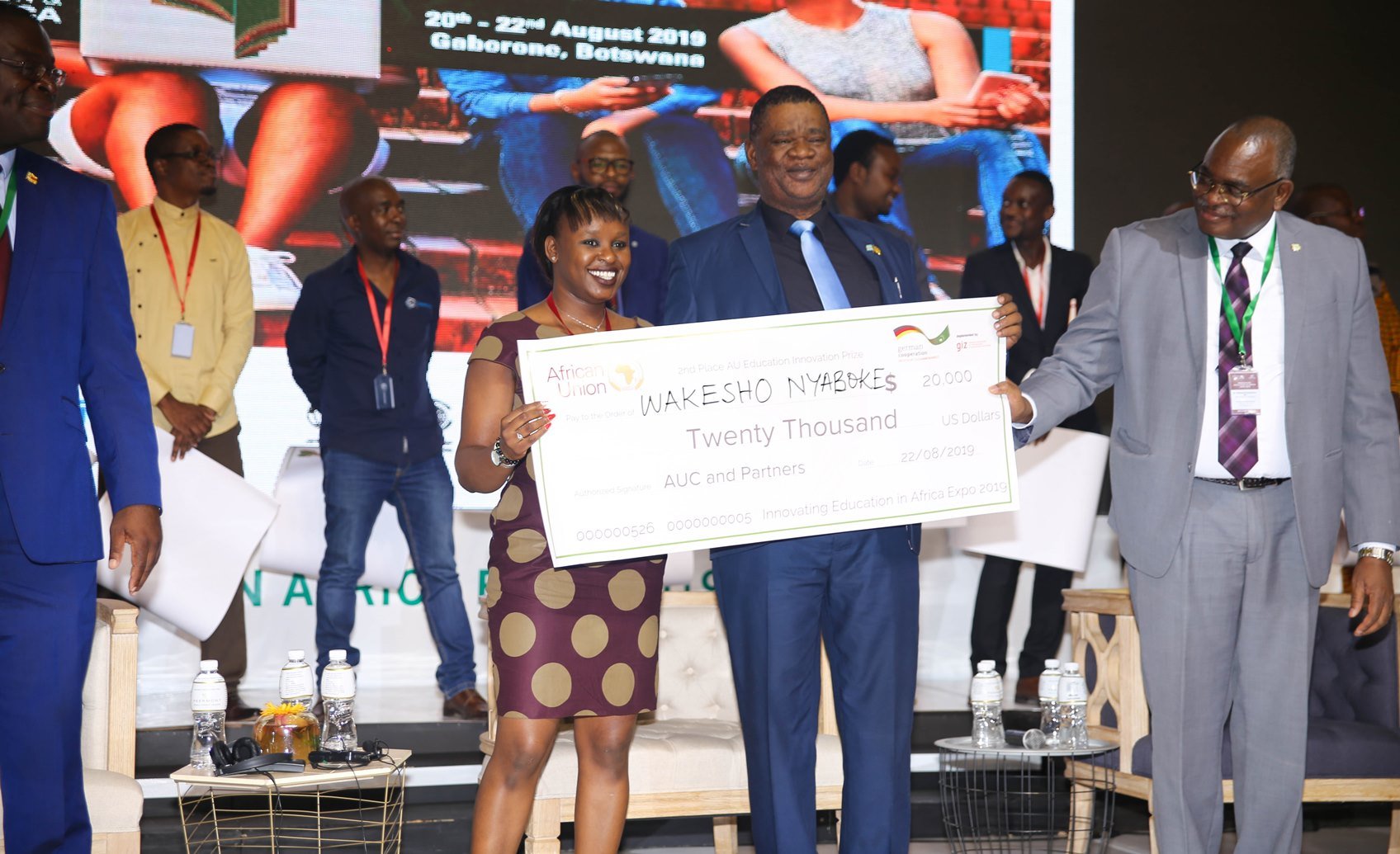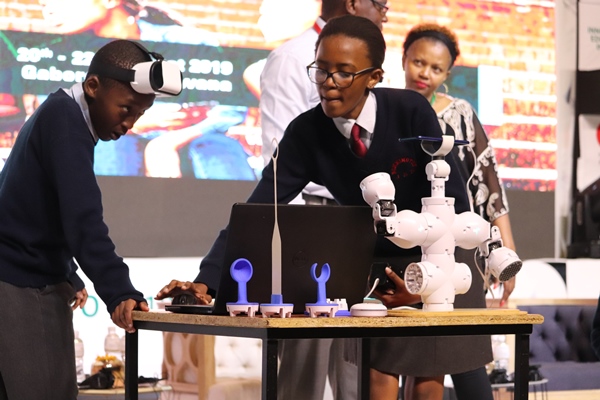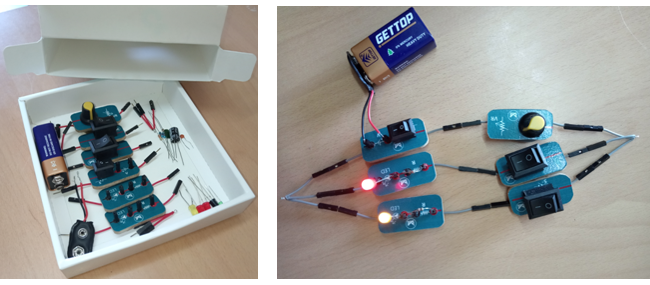
Title of Innovation: MITz Kits
Year of implementation: N/A
Website: www.mitzkits.co.tz
Implemented by: MITz Group Company Limited
Country/Countries where the Innovation is being implemented: Tanzania
Problem being solved
Practical understanding of the science subjects is crucial in crafting the creative and innovative minds of students in primary and secondary schools. However, achieving this milestone is the biggest challenge for most of the primary and secondary schools in Tanzania. Most of them don't have science laboratories, and those who have it most of them provide insufficient knowledge for students to visualize and relate the theories taught in the classes with their actual applications in daily life. This means more than 1,000,000 students every year are studying without having any practical understanding of the theories from the textbooks which leads to incompetent science subjects’ graduates being a national wise challenge.
Description of innovation
MITZ Group design, produce and supply MITZ KITS; simple, fun and relevant portable sets of Science tools for students from primary to secondary schools to perform syllabus based experiments with minimum supervision and bridge the gap between reality and theories in science subjects.
Every education system in Africa is struggling to get learning tools that can accommodate and prepare the kids with those trends at an early age and making kids find it easy to understand them during normal class sessions. MITz group designs science kits (MITZ KITS) that are portable and affordable, with unique science tools, a user guide and worksheets for a student to perform more than 50 science experiments and play with over 1000 scientific observations while recording them. They are small sets that can fit into the kids' backpack easily and with them, the science experiments can now be done in the class on the student’s desk with minimized supervision.
The model is designed to reflect the official science syllabus used in Tanzania. These Kits introduce a new way of teaching and learning science subjects. A way that equips kids with a practical understanding of different theories and technical issues they face in class consequently resulting in improved competency. By using MITZ KITS, science learning becomes interactive and interesting thus attracting more students to learn and understand science from its roots.
MITz Group envisions to simplify and minimize the traditional time for preparing and conducting laboratory activities in schools. The vision is to have a MITz KIT on every student’s desk and home studying table.
Outcomes and Impact
The innovation has so far benefited more than 5000 students through over 100 workshops and 60 school visits in Tanzania. Our next milestone is to expand the production and marketing team with a target of impacting 200 secondary schools and 15,000 students in for the next year.
Potential to be scaled and replicated
In early 2018 the business struggled finding for the support but the team worked hard to participate in grant competitions in and out of Tanzania. In October 2018 was recognized as among the best 50 education innovations in Africa by the Africa Union commission during the Africa education expo 2018. In March 2019 the business secured a USD $13,000 as seed fund from the Tanzania Commission for science and technology (COSTECH) which has been used to open and start manufacturing facility operations, piloting and market entry and testing. This grant connected the start-up with the National Small Industry development organization (SIDO) who supports us by allowing one of their working space as our office in two years for free. In December 2019 the start-up secured a USD $6,520 as an innovation support fund from the Tanzania ministry of education through Commission for science and technology (COSTECH) after emerging in the National best ten Research and development innovations 2019. 66.67% of this fund is going to be used for buying a packaging manufacturing machine and 33.33% for extending the marketing and promotion activities.
The business has just entered the market and started selling the products, and in the first two months, 180 kits at USD $12 each have been sold with ongoing discussion for partnership with 2 NGOs, 1 distributor, and 3 secondary schools.

Title of Innovation: The Community Tablet
Year of implementation: N/A
Website: www.kamaleon.co.mz
Implemented by: Kamaleon
Country/Countries where the Innovation is being implemented: Mozambique
Problem being solved
Statistically, very few rural communities have experienced the Digital Era we live in today. The Community Tablet was created to improve digital literacy in rural communities. This advocates e-learning as the way forward for Africa’s development. Our strategy combines “digital inclusion” with “E-learning for both the young and the old. The focus on education and literacy to providing a digital context is a response to the urgent attention and immediate deadline to attend to the widening gap of in the delivery of education in rural and disadvantaged areas.
Description of innovation
The Community Tablet’s impact in the rural environment is aligned with Sustainable Development Goal Number Four that has the object of providing quality education. Through the program “Creating the Mozambican Scientist of Tomorrow”, we introduced the Community Tablet to rural communities in Mozambique (Southern and Central Regions) – providing the infrastructure to facilitate affordable access to ICT and the Internet in communities with little or no digital literacy skills. We focused on civic education campaigns enabling local communities, students and farmers from various age groups to interact with our platform and connect to the web.
By promoting access to ICT,we strongly believe that the knowledge has been expanded amongst the participants. The topics are educational topicals are converted into short video cartoon animation where users can quickly assimilate the subject being taught. By also promoting interactive games where the learners have to apply what they watched in the videos into the quizzes. This is fun yet solid way to introduce them to internet as a an important research tool for the specific topics to enrich their knowledge. The Community Tablet aims to improve communications among educational institutions through live video conferencing classes and also pre-loaded syllabus content on video, ensuring a direct feedback from the learners to teachers. Each quiz activity is monitored in order to provide data on the outcome of a particular taugh lesson.
The Community Tablet hopes to contribute to the 2030 Agenda by providing an innovative way to bring quality education to the rural communities in Africa. With over 5000 participants on a yearly basis, we are proud to inform that 35% of the Community Tablet users are female. Young children and women are encourage to share the messages conveyed in a particular campaign thus empowering them with knowledge and leadership as vital part of their local communities.
Potential to be scaled and replicated
In partnership with interested partners, we have plans to scale up the both regionally and internationally. We would like to have available two Community Tablets in every province in Mozambique.
In terms of improvements, we are researching into innovative ways to cater for population with disabilities to be able access.
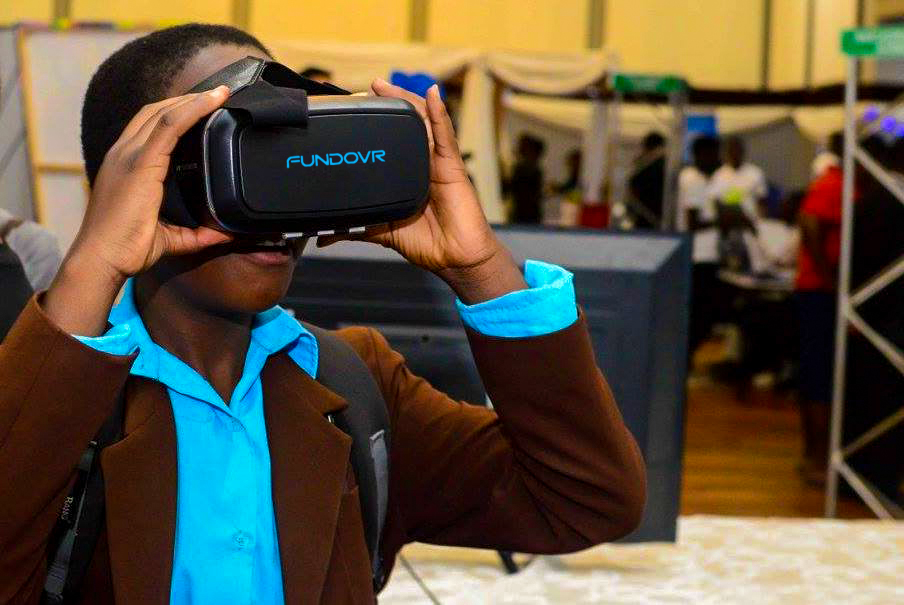
Title of Innovation: FundoVR
Year of implementation: N/A
Website: www.phenomtech.co.zw
Implemented by: Phenomenom Technologies
Country/Countries where the Innovation is being implemented: Zimbabwe
Problem being solved
It is difficult to implement excursion learning and teaching in most Zimbabwean schools due to inadequate funds in the schools and the field trips being expensive, therefore learners lack exposure to practical applications of education in the real world. Learners are disadvantaged, especially rural learners who most of, do not know what an excursion is. The learners are therefore deprived of rich educational experiences and lack appreciation of education due to not experiencing how it is applied in the real world, affecting their performance, both rural and urban learners. In Zimbabwe, a science learner can for instance finish their advanced levels without ever visiting a chemical plant, scientific laboratory or an industry where learnt scientific knowledge is applied. A primary school learner can finish Grade 7 without visiting any of the educational tourist sites in his/her country i.e. Matopos, Great Zimbabwe or Victoria Falls. This often leads to a poor appreciation of education by the learners in both rural and urban schools.
Description of innovation
Phenomenon technologies offers low cost virtual excursions (field-trips) to schools in Zimbabwe through the use of Virtual Reality which immerse the learners in the environment as if they were present themselves using our FundoVR innovation. Virtual reality (VR) is an artificial environment that is created with 360 cameras and presented to the user in such a way that the user suspends belief and accepts it as a real environment. Learners therefore get an opportunity to virtually explore an industry, chemical plants, educational sites or space without leaving the classroom. The FundoVR innovation seeks to achieve this by the creation of 360 content tailor made to suit curriculum needs and use of already existing 360 content in conjunction with virtual reality headsets to provide low cost excursions to the schools.The FundoVR service is provided directly to the schools at a very cost effective price from as little as $2.50 per learner whilst offering a similar learning experience to physical excursions which are expensive to conduct for schools. This is advantageous in that the excursions (field trips) are brought to the learners virtually in their classroom through FundoVR. Learners in the deepest rural schools can therefore also explore and experience endless possibilities of science applications, such as engineering, astrophysics and be able to virtually experience significant educational places as if they were there themselves, without leaving their classroom. Students familiarise themselves with real-life experiences, whilst enhancing their understanding of theoretical and practical concepts as viewed during these virtual trips.
Potential to be scaled and replicated
Phenomenon technologies has registered over 200 primary schools for its flight service, whilst more primary schools are still registering, we are yet to register secondary schools as well, therefore the innovation now requires funding to adequately provide the service and scale throughout the 10 provinces in the country. An initial $15000USD would be required to setup a team in each province. This means that a total funding of $135000USD is needed to adequately cover the service in the whole country as we currently operate in one province. Additional funding could also mean scalability of the innovation to other countries as our model can be easily adapted for other countries.
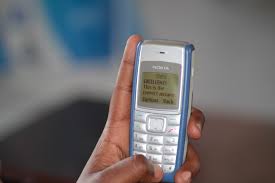
Title of Innovation: Learning through Interactive Voice Response (IVR)
Year of implementation: N/A
Implemented by: Oxygen Technologies Co. Ltd
Country/Countries where the Innovation is being implemented: Kenya
Problem being solved
Education Accessibility is a real problem facing most African countries, So our solution developed
to be a platform allow to audience to access for educational contents and materials from anywhere in anytime with cheapest possible cost.
Description of innovation
Based on Interactive Voice Response we developed a telecom solution provide a language learning materials and content through a phone call and without need for smart phone or high speed internet.
Audiance can listen to content by make a phone call to the system, then the system will direct through menues till he reach his target language level and class.
With partnership with local mobile operators in any country we can connect our platform with their network to make the service available for all mobile subscribers in that country. Based on daily subscription not exceed than half of a dollar, subscribers can enjoy the lectures all the day without charge base on call duration.
Potential to be scaled and replicated
Currently we have a subscription DB include more that 1 Million subscribers in our all language classes. So if we deploy and duplicate this platform in other African countries we expect a huge number of subscription in our learning services.
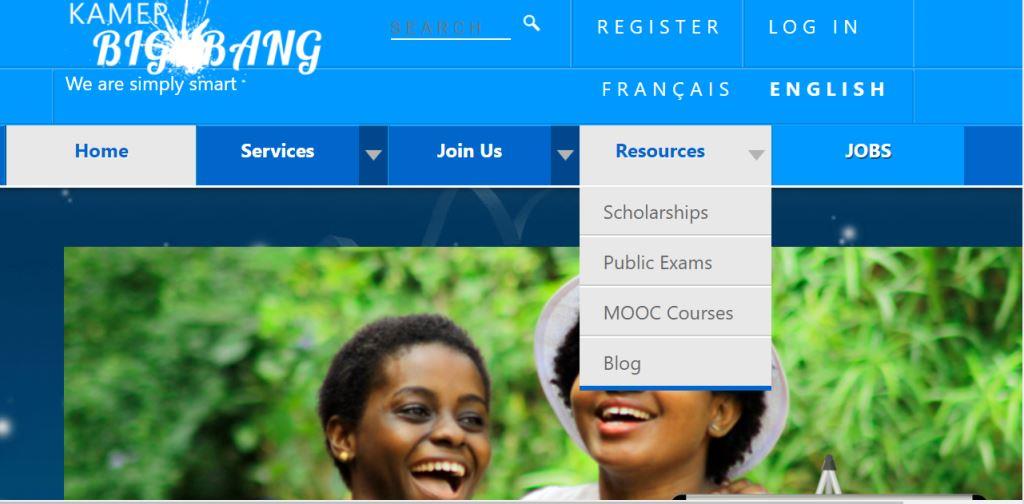
Title of Innovation: EduClick
Year of implementation: N/A
Website: www.educlick.africa
Implemented by: EduClick
Country/Countries where the Innovation is being implemented: Cameroun, Central African Republic, Chad, Equatorial Guinea, Gabon
Problem being solved
At EduClick, we find it inacceptable that youths and children are forced to drop out of school due to armed conflicts. Since the advent of the attacks of the Boko Haram sect posed on the Central African Region, Cameroon has been home to over 30 thousand refugees. Given the advent of the Anglophone crisis two years ago, Cameroon has seen over 300 thousand people displaced. It is worth noting that these conflicts target schools as some schools are burnt, others shut down. On the field, we have several NGOs and specialised UN bodies offering food, shelter and basic health facilities but nothing is done about Education and these children stay out of school and uneducated.
Description of innovation
EduClick's mission is to develop alternative learning methods for these children who cannot attend formal education. Our team made up of Cameroon's highest rated programmer and certified project Manager have partnered with teachers to propose a hybrid solution to this problem. Physical presence is used on one hand while technology is used on the other hand. Considering the fact that 2 out of every target family owns a mobile phone, and considering the fact that only 1 out of every 20 family has access to the internet, we're developing a product accessible with or without the internet.
Outcomes and Impact
Over 5000 people have gained new skills through www.educlick.africa. Since the lockdown due to the covid-19 pandemic, our platform has over 3000 active users monthly.
We've also launched online revision through WhatsApp and www.educlick.africa, so far, we have over 900 active subscriptions just within 3 days.
Potential to be scaled and replicated
Our project relies very much on information technology as well as technological innovations. Our team understands the project, possess the necessary skills to implement the project and our solution is scalable to any other African country and that's why we plan to target the 20 million refugees found across Africa in the next 10 years.
Page 1 of 7


